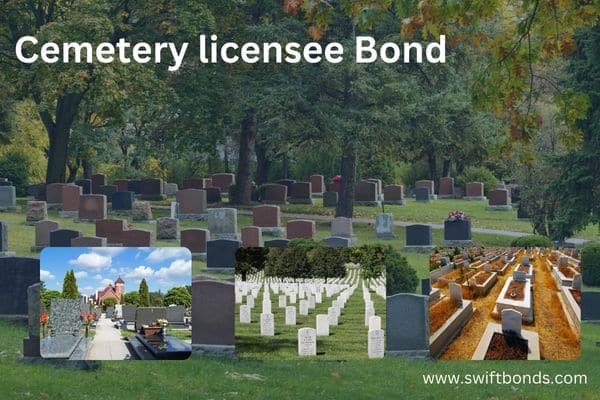What is a License Bond?
A license bond is a bond that is required by certain governmental entities, such as a municipality, which allows someone to engage in a specified activity (as you can see below – there are a lot of types of these bonds). The person seeking the bond is needing this permit bond to perform the activity and the bond ensures that the party wanting the bond will comply with the rules and regulations of the municipality. The person seeking the bond is known as the Obligor and the governmental entity is the Obligee.
Need a State or City License or Permit Bond Right Away? Click On Your State Below
Can't find the bond you're looking for? Call us today at (913) 214.8344 or email us at [email protected] to get a license or permit bond for your business.
License & Permit Bond
In many states, a license & permit bond is actually required before you can do any work. For example, a roofer in Texas will need a license & permit bond before starting any jobs. This is different from many other states where a license & permit bond is not required.
License and Permit Surety Bond Types

A concessionaire bond is a type of surety bond required for businesses that operate concessions, such as food stands or retail shops.

An Athletic Agent Bond is a surety bond required for individuals or entities acting as agents for professional athletes.

An FHA Bond (Federal Housing Authority) is a type of surety bond required for mortgage brokers and lenders participating in FHA loan programs.

A Freight Broker Bond, also known as a BMC-84 bond, is required by the Federal Motor Carrier Safety Administration (FMCSA) for freight brokers and freight forwarders.

A Cemetery Licensee Bond is a surety bond required for businesses or individuals operating a cemetery to ensure compliance with state regulations.

A Collection Agency Bond is a surety bond required for collection agencies to ensure they operate in compliance with state laws and ethical standards.

A Cigarette Tax Bond is a type of surety bond required for businesses involved in the manufacturing, distribution, or retailing of cigarettes.

A Private Eye/Detective Agency Bond ensures that the agency adheres to state regulations and ethical standards, providing protection to clients against fraudulent or unethical practices.

A Dealer Motor Vehicle Bond is a surety bond required for car dealerships to ensure compliance with state laws and ethical business practices.

A City Ordinance Compliance Bond is a surety bond required for businesses or individuals to ensure adherence to local city ordinances and regulations.

An Administrator Bond (probate bond) is required for administrators of estates, ensuring they fulfill their fiduciary duties responsibly and in compliance with legal requirements.

A Title Bond or Defective Title Bond, guarantees the holder of a vehicle or property title against claims or defects not discovered during the initial title search.

A Health/Fitness Club Bond is required for gyms and fitness centers to protect members and the state from financial loss due to the club's failure to meet contractual obligations.

An Employment Agency Surety Bond is required for employment agencies and ensures they comply with state regulations and ethical standards.
Fuel Tax Bond
This bond is needed by fuel sellers. Also known as an IFTA bond, it helps provide assurance that taxes will be paid by the fuel seller.
Types of License and Permit Bonds
Home Seller (Dealer) Bond (Mobile Home Dealer).
Mobile home sellers have a requirement for a dealer bond. This bond protects against dishonest sellers. These bonds protects consumers from misrepresentation, fraud and other perceived bad dealings in the mobile home market.
Insurance Broker – Surety Bond
Some states require that insurance brokers become bonded. These bonds protect consumers against misrepresentation and broker problems that they have no insight into.
Dealer Motor Vehicle Bond
A motor vehicle dealer bond is required for most states for those that want to sell vehicles. Especially necessary in the used car market, these bonds protect both consumers against fraud as well as the state to make sure that proper regulations are followed.
Payday Lending Bond
Payday lending has been increasingly within the spotlight in recent years. Given the increased scrutiny and negative public perception, bonds are now being required by most areas. These bonds are for those that want to get into the payday lending area and are needed prior to issuing a license to set up a payday lending operation.
Pest Eradication Bond
Pest control companies are now seeing a requirement for bonds. These bonds protect consumers to make sure that the pest control company has the proper permits, especially with the handling and disposal of the harmful chemicals that can be used.
Plumbing Business Bond
Some states require plumbers to get a bond prior to being licensed. These plumber business bonds are needed to protect consumers from fraudulent home repair/installation practitioners.

Pre-need Funeral Sales and Service Bond
A pre-need funeral bond is required by certain states (like North Dakota) prior to issuing a state license.
Private Detective (Investigator) Bond (for a personal license)
This is similar to the one required for an entire agency. Single agents also need a bond for their personal license. This is a great example of a fidelity bond.
Public Official Fidelity Bond
Public officials may be required to put up a bond to make sure that they uphold their duties in good faith. These are especially used for public officials that have access to funds or other private information, such as the county clerk. These are some of the oldest types of bonds that have been issued. In the 1800's, these were standard in many public offices and were usually granted by another individual.
Roofers Bond
Roofing companies, in some states, are required to obtain a bond prior to getting a home improvement/installation license.
Sales and Use Tax Bond
This bond is required by your local state government for business that are involved in retail sales, or that rent goods or leases. The bond protects the government and makes sure that it will received its taxes by the retail business.
Tax Preparation Bond.
ax preparers, like H&R Block or Liberty Tax, have to become bonded. Most states require these bonds now, which is an outgrowth of the tax fraud cases of several years ago (not against H&R Block, though) where tax preparers were filing returns that they knew were improper.

Warranty
(Product or Otherwise) Bond. A warranty bond makes sure that a contractor performs work according to the owners' satisfaction. It further provides assurance that the work being done meets all applicable codes and other statutory requirements.
Wholesale Distribution of Fuel (non-retail) Bond
Wholesale distributors are required to put up a bond to make sure that all applicable laws are being followed and that taxes are being withheld and paid properly.
Permit and License Bond
License and permit bond are in huge contrast to most types of contract bonds or other types of bonds that might be required by the federal government, municipal governments or the state government. These bonds are required if any business wants to keep their commercial license to continue operating in the state. They will need to provide assurances that their business is financially secure and that it protects the safeguards set for the public's safety, morals, welfare and health. Even though most of these bonds are only able to cover up to the limit explicitly state on penal sums, it will also provide the business with coverage for taxing authorities, suppliers and laborers. You must then purchase additional forms of coverage through liability policies for commercial use. Since bonds are not considered to be a type of insurance contract, you will need to understand that it will not cover property damage or third party injuries that result from any type of negligence from the contractors.
Get license bond insurance today!
License Bond
A license bond is similar to a license and permit bond only it's limited in what is required. For most purposes, you can consider this the same thing as a license and permit bond, as it's really a requirement to doing business within the state.
What is a License and Permit Bond?
As we mention above, a License and Permit Bond is something that is required by a governmental entity to ensure that the business is abiding by all required laws. It protects the consumer and, in many cases, protects the government.
What is the Cost of a License & Permit Bond
The cost varies considerably depending on the type of bond. Many bonds only cost one percent (1%) of the total bond amount. So, for a $20,000 bond, the cost would be $200. For other bonds, the cost runs as high as 15%.
Permit Bond (aka License Surety Bond)
A permit bond is a surety bond that provides protection for a permit business. Typically used in commercial projects, the bond provides protection for business that the government requires to get a permit, such as a building permit. A License Surety Bond is really just another name for a license bond, or license and permit bond.
What is a Contractor's License Bond? Do you Need a License and Permit Bond?
It's a surety bond for a contractor to get a license in a certain area. Governments require the Principal (the contractor) to get a bond to protect the Obligee (the government) through a third party (the surety). And yes. In many places it is required before working in that area.





















